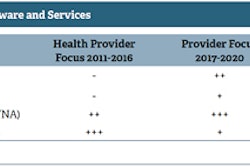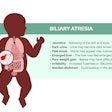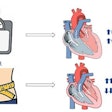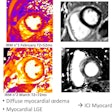
The term "e-health" is one wielded frivolously across the healthcare sector. The sheer breadth of topics, stakeholders, and issues under this term is both sobering and absorbing, and was clearly apparent on glancing down the agenda for First Annual COCIR (European Coordination Committee of the Radiological, Electromedical and Healthcare IT Industry) eHealth Summit and Workshop in Brussels.
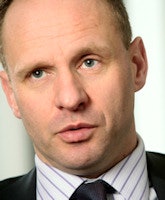 Europe must do a better job on electronic health, according to Hans Vandewyngaerde. Image courtesy of Agfa Healthcare.
Europe must do a better job on electronic health, according to Hans Vandewyngaerde. Image courtesy of Agfa Healthcare."There is no magic formula. We identified the problem, we planned a solution, and we just did it," said Anne Kallio, head of development for the Finnish Ministry of Social Affairs and Health, when quizzed on why her country was so far ahead in e-health implementation.
Hans Vandewyngaerde, COCIR board member and vice president of Agfa Healthcare EMEA, set the scene for the two-day conference, held on 18 and 19 November, with a stark yet optimistic warning. To paraphrase, Europe is not doing a good job in electronic health, major challenges lie ahead, we are all responsible, and we must have a clear vision to capitalize on advanced technology to improve the provision of healthcare in Europe.
What followed was a whirlwind event packed with debate and discussion from some of the leading stakeholders deciding the future of e-health in Europe. First came a workshop on electronic patient record (EPR) deployment, with various perspectives from economists, industry vendors, health legislators, hospital executives, and clinical staff. A few key themes emerged in clarity:
- Measuring clinical and economic outcome metrics to improve care pathways is an essential and fundamental reason for driving EPR deployment
- EPR deployment is a long, challenging, and complex process for hospitals to undertake
- Most of Europe is lagging behind other advanced healthcare regions in EPR deployment (with the exception of the Nordic region)
- EPR today only really addresses the acute care setting -- far more focus, investment, and innovation is needed in the primary care setting to face today's healthcare challenges
For most in the audience, the concepts presented were not new. Most striking (and frustrating) was the realization that successful e-health is already being deployed in some regions, but for a number of reasons, other parts of Europe are lagging far behind. Also apparent was that healthcare as a whole is far behind in the use of IT and technology compared with markets such as banking, travel, and consumer technology.
The second day was filled with more debate, examples, and presentations from industry, users, and legislators across four key themes: digital hospitals, regional and national EPRs, big data, and health.
Again, the stark wake-up call to action for wider use of digital technology in healthcare ran throughout the day, with excellent examples and user experience of the impact of successful e-health implementation. Intriguing too was the view of the new era of healthcare -- one in which physician, digital technology, cognitive computing, and big data analytics are combined to provide cutting-edge, personalized care pathways.
This vision for e-health, a key part of the challenge issued at the start of the conference, was becoming clear. Less clear was how to achieve it. Every implementation example presented at the conference focused largely on the unique challenges that were faced and overcome. Between regions and types institutions, each had unique issues. Each had to find its own solution. Each had to find a way to make implementation successful given the unique environment, structure, funding, and governance.
From this, a fundamental challenge emerged for all in attendance.
The concept of "one size fits all" does not, and will not, apply to the e-health challenge. Even with harmonization of data standards and universal EU legislation forcing EPR adoption (a pipe dream for sure?), the complexity of the problem will remain too great for a single solution.
Instead, only through partnership, innovation, trust, long-term strategic planning, and sheer will from all stakeholders, can the exciting vision of e-health become a reality.
The Brussels conference was organized in partnership with Healthcare Information and Management Systems Society (HIMSS) Europe and the European Hospital and Healthcare Federation (HOPE).
Stephen Holloway is the associate director of medical technology research at IHS.
The comments and observations expressed herein do not necessarily reflect the opinions of AuntMinnieEurope.com, nor should they be construed as an endorsement or admonishment of any particular vendor, analyst, industry consultant, or consulting group.





